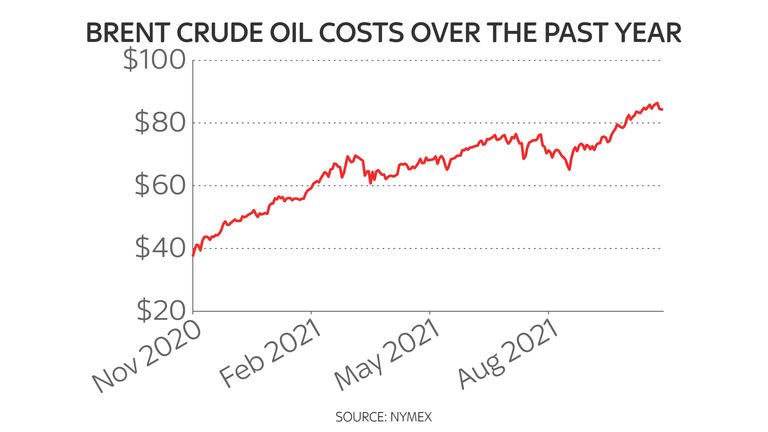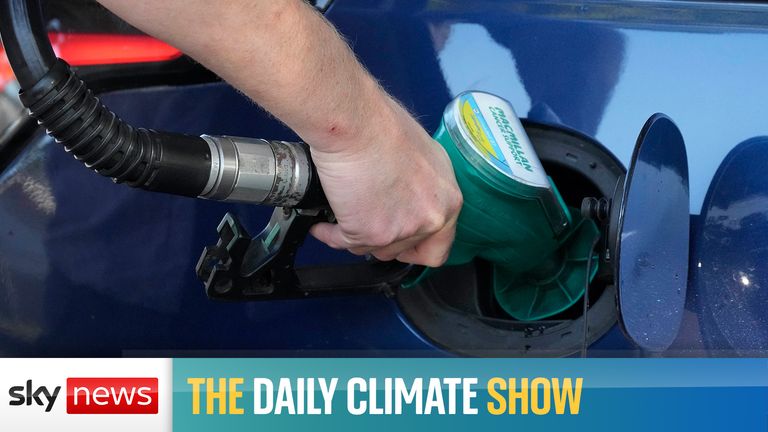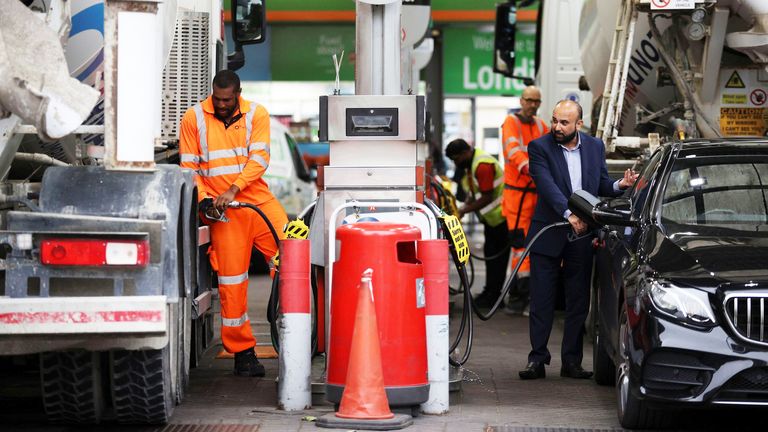Price of diesel at pumps hits record high as cost of living surges
Diesel costs have hit record levels just a week after a new peak was set for petrol prices, piling more misery on drivers and businesses as the cost of living surges.
The average price of a litre of diesel on Sunday was 147.94p, according to Experian Catalist data cited by motoring groups the RAC and AA, surpassing the previous high of 147.93p set in April 2012.
Petrol now averages 144.35p, nearly 2p a litre dearer than its 2012 high of 142.48p.
The primary reason for the fuel hikes has been a doubling in oil costs over the past 12 months, with Brent crude currently standing at $84 a barrel, as pandemic-hit economies get back in gear.
Rising diesel costs are felt by businesses particularly as HGVs and vans are a backbone of the economy.
Chancellor Rishi Sunak could have made things worse by imposing a planned rise in fuel duty at last week’s budget but he held off given the current state of pump prices.
The UK has 4.5 million vans and 525,000 heavy goods vehicles, the vast majority of which still run on diesel amid a slow transition towards limited climate-friendly options.
RAC fuel spokesman Simon Williams said of the price position: “While this isn’t unexpected, as petrol has already hit a new record price, it’s still another body blow to drivers and businesses across the country who were already struggling to cope with rising prices.
“As well as hitting household budgets this will have a knock-on effect on the price we pay for goods and services, as diesel is very much the fuel of business and, as such, will contribute further to inflation.”
Inflation is very much in focus this week as the Bank of England’s monetary policy committee (MPC) meets to discuss whether a response is needed to help curb rising costs.
Financial markets expect on Thursday the first rise in interest rates since the cut to a record low 0.1% at the start of the COVID-19 pandemic.
Bank governor Andrew Bailey warned last month the MPC “would have to act” to dampen rising inflation expectations – driven by temporary but significant rises in energy costs – because of the effect they can have on wages.
But some economists think the central bank might hold off on a tentative increase to 0.25% until it has a clearer idea of the scale of the slowdown in Britain’s recovery from the pandemic.
The latest IHS Markit/CIPS Purchasing Managers’ Index (PMI) covering the manufacturing sector gave the latest indication that output growth was slowing and that prices charged by factories were rising at unprecedented levels, reflecting a surge in input costs.
The rate of inflation, as measured by the consumer prices index (CPI), is tipped to have surged last month on the back of the 12% rise in the energy price cap for households on so-called default tariffs.
It currently stands at 3.1% but the Bank’s chief economist Huw Pill said a week ago that the rate could exceed 5% in the coming months.





